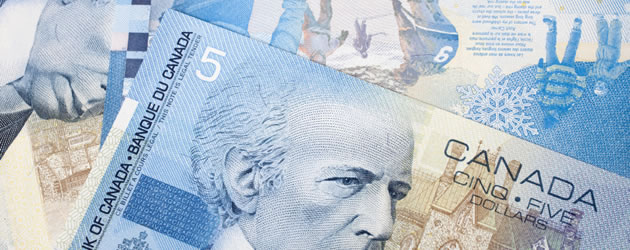The Euro to Canadian Dollar weakened by more than 1% to slide to its lowest level since September 2013 on Thursday after the Bank of Canada left interest rates unchanged at 0.75%.
The Euro to Canadian Dollar Slumped to a Session Low of 1.3760
After the rate decision announcement the ‘Loonie’ advanced strongly against the majority of its most traded peers and hit session highs against the Pound Sterling (GBP) and US Dollar (USD).
The Bank argued that it left interest rates unchanged after a previous cut provided a decent amount of monetary stimulus needed to counter some of the negative impacts created by lower oil prices.
‘At present, we judge that the current degree of monetary stimulus is still appropriate. The risks to inflation outlooks and financial stability are now more balanced. Financial conditions have eased materially since January, in response to the Bank’s recent monetary policy action and to global financial developments. This easing is reflected across the yield curve and in a wide range of asset prices, including the Canadian Dollar,’ said the Bank in its statement.
The Canadian central bank added that total inflation had fallen as forecast due to the fall in oil prices, and that core inflation remains close to the bank’s target of 2%.
Core continues to be temporarily boosted by the flow through effects of the lower value of the Canadian Dollar and other sector-specific factors. The remarks also suggest that the bank is not overly concerned that core is over target at 2.2%.
Economists had been expecting the Bank to make another cut today. The strength of the US economy, which is Canada’s largest trading partner was said to be the main source of momentum in the nation.
Also supporting the ‘Loonie’ were oil prices, which remained above the $60 per barrel as news broke that Libyan militants seized control of two oil fields.
Data released in China also provided support to commodity-based assets like the ‘Loonie’ after it showed that Chinese Services PMI data beat economist expectations.
ECB Rate Decision In Focus
The Euro meanwhile remains under broad selling pressure as economists ahead of Thursday’s ECB post-policy meeting press conference, where President Mario Draghi was expected to announce more details on its quantitative easing program, which is due to start this month.
Traders widely shrugged off the release of stronger than forecast retail sales data and mixed PMI data releases.



